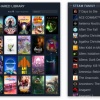Better Science Through Gaming
The success of various DNA-sequencing projects promises to make genomic research an exciting new frontier. But studying the data has proved so tedious that some scientists have been tempted to quit.
"It wasn't fun," said Al Aplin, a research scientist at the University of Washington in Seattle who crunched information by cramming data on 20,000 genes into an Excel spreadsheet augmented with custom macros. "I was going blind looking at the stuff."
He wasn't the only one not having fun. When Eric Olson was a grad student at the University of Washington, his adviser abandoned several projects because it was too difficult to manage the data. So Olson and some of his colleagues left academia in 2001 to create their own software and start a company.
The result is the Web-based GeneSifter, possibly the first user-friendly genome analysis software. It can shorten a project from months to hours. Some even say it's almost as fun as a video game, at least compared with the alternatives.
That's no coincidence -- one of GeneSifter's developers spent almost 20 years programming video games, including Power Chess for Sierra. Elon Gasper began his career in the life sciences, and was looking to get back into the field. He was shocked by the computer tools genomic researchers had to choose from.
"Software for the life sciences has lagged the consumer market by 20 years," said Gasper, senior vice president of VizX Labs, the company that makes GeneSifter. "It's amazing to me."
Based on the original program written by Olson, scientific director at VizX, and Jeff Kozlowski, head programmer at VizX, GeneSifter uses XML to aggregate information from public and private genome databases like the National Institutes of Health's GenBank, Ensembl in the United Kingdom and GeneCards in Israel. The software can run on any operating system including Windows, Macintosh and Linux.
Each database might use a different name or number to identify a gene or a group of genes, so GeneSifter standardizes them. The scientists compare the data with information they've collected in their experiments using microarrays, which are like computer chips that contain genetic information, made by companies like Affymetrix.









































































